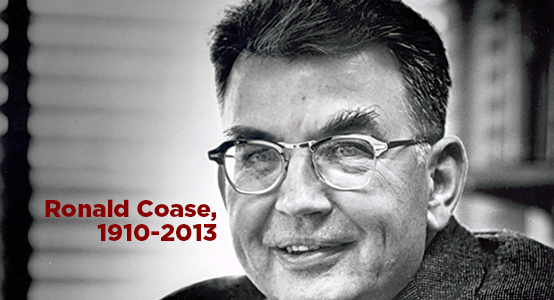Professor Michael Munger received his Ph.D. in Economics at Washington University in St. Louis in 1984. Following his graduate training, he worked as a staff economist at the Federal Trade Commission.
Early Career
His first teaching job was in the Economics Department at Dartmouth College, followed by appointments in the Political Science Department at the University of Texas at Austin (1986-1990) and the University of North Carolina at Chapel Hill (1990-1997). At UNC he directed the MPA Program, which trains public service professionals, especially city and county management.
More recently
He moved to Duke in 1997, and was Chair of the Political Science Department from 2000 through 2010. He has won three University-wide teaching awards (the Howard Johnson Award, an NAACP "Image" Award for teaching about race, and admission to the Bass Society of Teaching Fellows). He is currently director of the interdisciplinary PPE Program at Duke University.
We focused mostly on his latest book, Tomorrow 3.0: Transaction Costs and the Sharing Economy, published this year.
Ron’s Questions
You say book grew out of conversation with Russ Roberts on EconTalk in 2014, one of our favorite podcasts. How did the book germinate?
The main thesis of Tomorrow 3.0 is: “Reduced transaction costs foster permissionless innovation to make more efficient use of, [and commodify] excess capacity.” Explain?
You date this approximately to 1997 with eBay, where we began selling not more stuff but reductions in transaction costs for access to existing stuff.
Uber and AirBNB don't sell taxi and hotel services, they sell reductions in transaction costs.
You describe three types transaction costs:
Triangulation—matching buyer with seller, agreeing terms
Transfer—of product/service and payment terms
Trust—Honesty, performance (ratings and brands fulfill this role, among other traits).
You make the excellent point that to the consumer, all costs are transaction costs: time, search, inconvenience, payment terms, trust, etc. A reduction by 10% is the same as a reduction in price of 10%.
From the buyer’s perspective: all costs are transaction costs. Consider Uber’s surge pricing: You either pay in money or time. The father of transaction cost economics is Ronald Coase.
The sharing economy is:
Entrepreneurship applied to reducing transaction costs rather than production costs (Biology active agent: natural selection; economics is entrepreneurship = imagine an alternate reality
Working through new software platforms
Operating on smart, portable hardware
Connected over the web
The Value Proposition is: selling access to excess capacity. In the US, Self-storage is roughly 50,000 facilities, containing 15 billion cubic ft. of stuff. The desire to “own stuff” could decline.
Cars and houses are obvious areas where there is excess capacity, but how about clothing (closet in cloud), appliances, etc. What will 3-D printing allow in the future?
This struck me: You believe Uber not a threat to taxis as it is to Amazon—the ability to reduce transaction costs of renting vs. buying.
I want to go to the day after Tomorrow 3.0, what’s the threat to Uber? Couldn’t Blockchain, autonomous cars, and cryptocurrency disintermediate Uber completely?
Mike’s three predictions:
Third great economic revolution innovation in digital tools, reduce transaction costs, not creation of new products
Better use of excess capacity, sold rather than stored
People will collect “experiences”
You talked with Ed about permissionless innovation, and here in California the courts just ruled that Uber drivers are “employees.” You wrote that saying that is like saying Rotten Tomatoes makes movies. Are you worried that government regulations will slow down some of these innovations?
You write that the purpose of an economy is not to create jobs but consumer surplus.
Ed’s Questions
From another work of yours, you have this concept of Euvoluntary: it’s sort of voluntary, but not really. Philosophers believe people can be coerced by their circumstance, so transactions are only voluntary if there are many buyers and sells, and if the buyer is not desperate and has alternative choices.
Is Uber surge pricing, or hotel rooms during hurricanes, voluntary or Uvoluntary?
When we get into a market that significantly reduce transaction costs, do you think the government should do something about the short-term effects of this transition.
In Spain at the conference I’m at, the number one growth stock on the NYSE since 2010 is Dominos. The reason: because 60% of its sales come from its mobile application—a reduction in TCs. They are shooting for 100% in 3-5 years. Your thoughts?
Why is 19th century Governor of Pennsylvania Daniel Hastings a hero? Because Hastings vetoed an 1896 law that the Pennsylvania General Assembly passed—the "red flag" law, found in US and England. Any self-propelled vehicle be proceeded by a man on foot walking 50 to 100 feet in advance, waving a red flag in warning.
Of course, it was done ostensibly to “protect the people”—but in reality it was to save jobs related to horses. In 1915 there were 27 million horses in the USA and 100 million people, while in 1970 there were only 5 million horses.
What does company profit and a giraffe’s neck have to do with one another?
George Gilder labels profit as an index of your altruism. Comment on that point of view?




